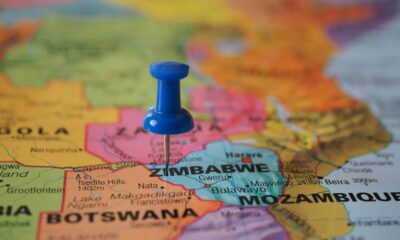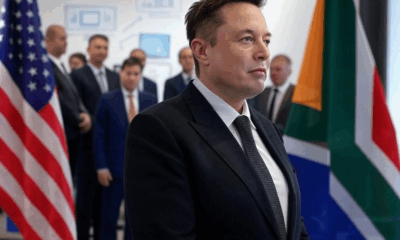News
ICT Sector Council Slams New BEE Proposals That Could Let Foreign Giants Bypass Local Ownership Rules

The B-BBEE ICT Sector Council has voiced serious concerns about new policy proposals that could reshape South Africa’s information and communications technology (ICT) landscape—potentially at the cost of local empowerment and inclusive growth.
In a statement issued on Tuesday evening, the council welcomed the Communications Minister’s intention to open up the market to new licensees through individual electronic communications network service (IECNS) licenses. This move, they said, could unlock opportunities for smaller players—if done responsibly and in line with transformation objectives.
But optimism quickly turned into concern.
At the heart of their worry is a newly gazetted policy proposal that could allow large multinational companies to enter the market through Equity Equivalent Investment Programmes (EEIPs), rather than meeting the current requirement of 30% ownership by Historically Disadvantaged Individuals (HDIs), as outlined in the Electronic Communications Act.
A Backdoor for Foreign Corporations?
The Council fears that such a shift could open the door for companies like Elon Musk’s Starlink—especially after a high-profile meeting between U.S. President Donald Trump, President Cyril Ramaphosa, and Musk himself. Though Starlink hasn’t applied for a license yet, the timing and nature of these policy moves have raised eyebrows.
“EEIPs may be a convenient loophole, but they undermine the entire point of B-BBEE,” the council cautioned. “The goal is not just economic compliance, but direct ownership and participation by South Africans who have historically been excluded.”
Transformation at Risk
For the council, the concern isn’t theoretical. They argue that the current 30% HDI ownership rule plays a critical role in ensuring that transformation isn’t just symbolic but has tangible results—like building infrastructure, creating jobs, and expanding access to underserved areas.
Replacing this with vague or poorly measured EEIPs, they say, could reverse hard-won gains. It could allow global giants to reap profits from the local market while contributing little to its development.
“There are real risks here,” the council stated. “Local internet service providers (ISPs), especially those serving rural and township areas, could be decimated by a low-cost, infrastructure-light model led by foreign companies.”
This could also drain revenue out of the country, impacting local innovation, job creation, and broader economic development.
Wider Consequences for Economic Justice
The Council believes the implications stretch far beyond ICT. They warn that bending BEE requirements in the tech sector could create a ripple effect, weakening transformation mandates in other critical industries.
“This isn’t just about one company or one policy,” the statement said. “It’s about whether South Africa sticks to its commitment to genuine, inclusive economic growth—or folds under external pressure.”
Call for Transparency and Accountability
To ensure that transformation remains a measurable goal, the Council is calling for a full-scale review of the EEIP model. They’ve raised red flags about a lack of transparency, weak oversight, and insufficient impact tracking.
They want:
-
Mandatory public reporting on EEIP effectiveness
-
Clear KPIs to measure progress
-
Involvement of regulators and sector experts in assessing the viability of new licensees
-
Assurance that new entrants contribute to the Universal Service Fund and align with the country’s broader ICT goals
Any exemption from these responsibilities, they argue, could create unfair advantages and deepen the digital divide.
Next Steps and Public Engagement
The B-BBEE ICT Sector Council plans to submit formal input during the 30-day public consultation period and is encouraging all stakeholders—especially those invested in real transformation—to join the dialogue.
Ramasela Matlou, spokesperson for the Independent Communications Authority of South Africa (ICASA), confirmed that the regulator is reviewing the policy directive. She also clarified that Starlink has not yet applied to operate in South Africa.
As the ICT sector awaits clarity, one thing is certain: the road to transformation must remain grounded in South Africa’s constitutional and developmental values, not rewritten by global interests.
{Source: IOL}
Follow Joburg ETC on Facebook, Twitter , TikTok and Instagram
For more News in Johannesburg, visit joburgetc.com



























